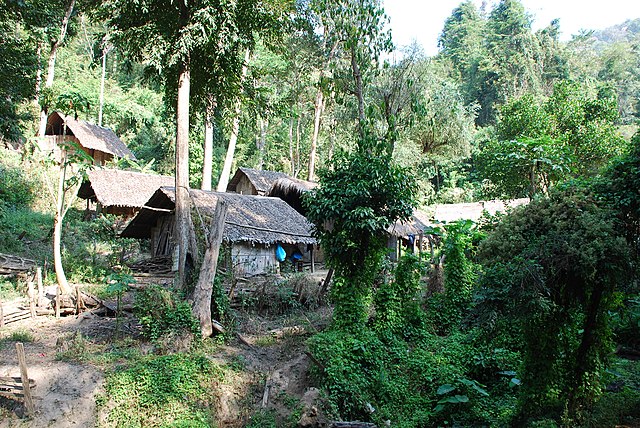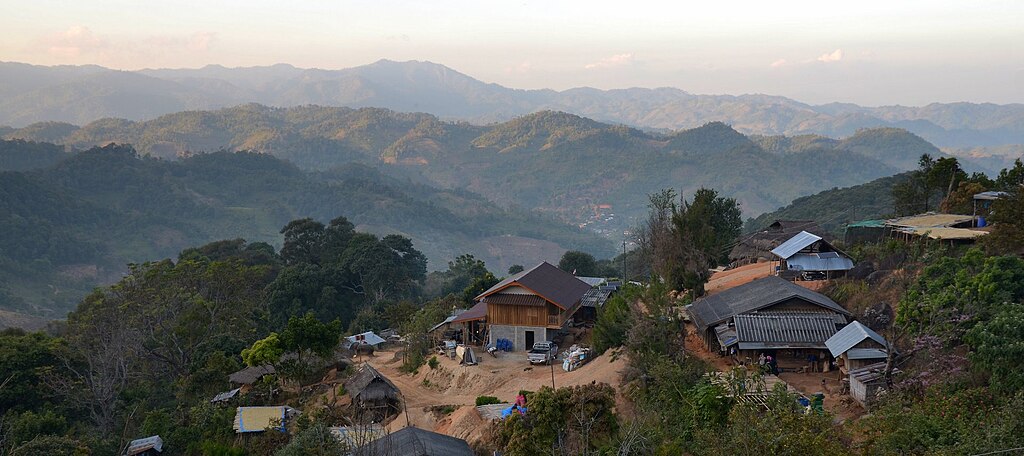Thammasat University students interested in the allied health sciences, education, sociology, and related subjects may find it useful to participate in a free 29 August Zoom webinar conference on the Role of Thai Village Health Volunteers in Controlling COVID-19.
The event, on Monday, 29 August 2022 at 9am Bangkok time, is presented by the Institute of Southeast Asian Studies (ISEAS) – Yusof Ishak Institute Singapore.
The TU Library collection includes some books about village health volunteers in Thailand.
Students are invited to register at this link:
https://us06web.zoom.us/webinar/register/WN_lcafWIOlQpCAsI_UMEq2NA
As the webinar description posted online explains:
The Role of Thai Village Health Volunteers in Controlling COVID-19
About the Webinar
Thailand was the first country to detect a case of COVID-19 outside of China, on 13 January 2020. In 2019, Chinese travellers comprised the largest number of tourists in Thailand, accounting for more than a quarter of the close to 40 million people that visited the country. Despite this, COVID-19 cases and related deaths were remarkably low prior to a surge in cases from April 2021. As of mid-October 2020, Thailand had recorded only 3,652 COVID cases and 59 COVID-related deaths. It was hailed by the World Health Organisation as a success story in responding to the pandemic. In January 2021 Thailand was ranked fourth best in handling the COVID-19 outbreak, out of 98 countries, according to a Lowy Institute analysis. The low rates in infection were linked to Thailand’s well-established and well-resourced public health system. Village health volunteers, who form the backbone of Thailand’s primary health care system, were critical to early success in managing the pandemic. Drawing on preliminary research in Chiang Mai, Northern Thailand, this webinar examines some of the reasons for this success and the important role that primary health care continues to play in controlling COVID-19 and other infectious diseases in Thailand.
The speaker will be Dr. Anjalee Cohen, senior lecturer in the Department of Anthropology, University of Sydney, Australia. She specializes in medical anthropology and Northern Thailand. Her book Youth Culture and Identity in Northern Thailand: Fitting In and Sticking Out (2020) is available to TU students through the TU Library Interlibrary Loan (ILL) service.

In 2020, the World Health Organization (WHO) website noted:
Thailand’s 1 million village health volunteers – “unsung heroes” – are helping guard communities nationwide from COVID-19
28 August 2020
Koo Bang Luang, Thailand — For four decades, Thailand’s vast army of village health volunteers have helped their fellow citizens to keep safe from all manner of disease. Now the volunteers are helping to protect them from an epidemic unlike any they have ever faced.
The volunteers have eased the anxious journey of people like Somchai Chachumpa, 37, who in March fled a COVID-19 outbreak in the Republic of Korea, where he was working in an ice cream factory, to return to his home in Koo Bang Luang.
“I was very worried, scared and wanted to leave as early as possible, knowing it will be better in my home country,” Somchai said in an interview with the World Health Organization (WHO).
He said that during his mandatory 14-day quarantine after arriving home, “the health professional and the health volunteer called every morning to make sure I was okay; that I checked my temperature daily and monitored myself.”
“They also provided me with meals and made sure I was not too stressed,” he added.
Now Somchai is safe and looking for a job in Koo Bang Luang, a semi-urban subdistrict of Pathum Thani province that is 50 kilometers north of Bangkok.
The Ministry of Public Health manages 1.04 million village health volunteers across the country, including 15,000 volunteers in Bangkok. Each volunteer receives 1,000 Thai baht (about US$ 32) per month and has received an extra 500 baht incentive during the COVID-19 outbreak.
These volunteers have been a key part of primary health care in Thailand during the past four decades. They undertake health surveys, collect data, maintain family health records, and do disease prevention campaigns to support the public health authorities. In times of outbreaks, their meticulous records of the medical histories of community members are used for contact tracing and health monitoring.
The volunteers have helped protect people from long-familiar diseases throughout their seasonal cycles. During the rainy season, they visit homes to empty containers of still water where dengue-bearing mosquitoes lay their eggs, kill mosquito larvae, and eliminate breeding places. During the summer, they help the rural livestock department give rabies vaccines to cattle and pets.

In June, research was published on Roles of Village Health Volunteers in the COVID-19 Pandemic Crisis.
The authors were Dr. Sansanee Chanarnupap, Faculty of Humanities and Social Sciences, Thaksin University and Dr. Promsak Jitjum, Southern Cities Climate Change Resilience Networks Foundation, Songkhla.
Here is the article abstract:
This article aims to study (1) roles of village health volunteers in the COVID-19 pandemic situation, and (2) guidelines of competency development for village health volunteers in dealing with emerging infectious diseases. It is based on a field research focusing on village health volunteers in Patong sub-district, Hat-Yai district, Songkhla Province. The research methodology employs qualitative data collection methods covering general observation, in-depth interview, group interview and brainstorming. The research key informants are 60 persons recruited by purposive sampling. The research findings are derived by conventional content analysis and triangulation method. It is found that village health volunteers arguably play an important role in community-based interventions for infection prevention and control; principally 6 areas, risk communication, home health care, screening for the disease, disease control, voluntarily providing the necessities for people who are in needs, and faithfully guarding the village against corona. Moreover, this research also reveals that village health volunteers should be equipped with competencies, particularly in 3 areas: digital literacy, health literacy, and transformational leadership skills. Accordingly, the reskill and upskill programs for village health volunteers are most likely compulsory for enhancing the self-reliant capability of local community to overcome recent COVID-19 pandemic and other emerging diseases crisis in the future.
Extensive other medical studies and reports as well as research papers and news media accounts provide a full description of the significant contribution made by village health volunteers in controlling and preventing virus transmission during the COVID-19 pandemic.
As an article posted on the website of the Embassy of the Kingdom of Thailand in Washington, DC observed:
Known as the “gray shirt warriors,” over a million village health volunteers, a network founded decades ago, are helping to contain the coronavirus in Thailand by regularly monitoring households in their towns and neighborhoods with an especially close watch on those most vulnerable.
“We conduct home visits and can’t miss a single one, or it could spread the contagion all over the village. However, asking every household for cooperation is not easy because it takes time to raise awareness and build trust,” volunteer Nopphanat Subhakul in Prachuab Khiri Khan told the Bangkok Post.

(All images courtesy of Wikimedia Commons)

